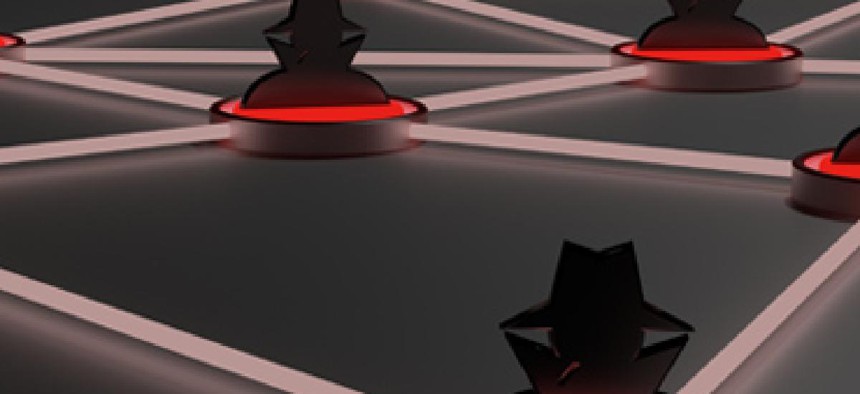How cyber impacts the full spectrum of terror threats

Cybersecurity still ranks near the top of threats that worry the nation's security agencies.

Despite the immediate logistical demands of three catastrophic hurricanes in the last two months and various geopolitical flashpoints, cybersecurity remains a key issue and very much on the minds of top federal defenders.
"There is no longer a 'home game' and an 'away game,'" for homeland security, DHS Acting Secretary Elaine Duke said at a Sept. 27 Senate Homeland Security and Governmental Affairs hearing. "The line is blurred, and the threats are connected across borders."
"Cyber is fueling all other terror threats," said Chairman Ron Johnson (R-Wis.) Online cross-pollination between terrorist and transnational crime organizations and other nefarious actors has made a "witches' brew of the internet."
Senators peppered Duke, National Counterterrorism Center Director Nicholas Rasmussen and newly-installed FBI Director Christopher Wray for over two hours with questions about the wide panoply of threats facing the U.S. homeland.
Duke said America's enemies are crowdsourcing their views online and "promoting a do-it-yourself approach that involves using any weapons their followers can get their hands on easily."
Duke, in her first remarks to Congress as acting agency secretary, said DHS is moving "towards a more integrated approach" to its security mission that brings together intelligence, operations, interagency engagement and operations.
She added her agency was "raising the baseline of our security posture --across the board," looking at how it generates, analyzes and shares its data.
With the high-profile breaches of Equifax and federal databases and the havoc wrought by Wannacry and Petya ransomware, the past year marked "a turning point in the cyber domain," placing it squarely in the public consciousness, she said. Hackers and cyber criminals, Duke added, have access to many of the same tools that nation states leverage.
"This is redefining homeland security as we know it," she said.
When asked by Sen. Heidi Heitkamp (D-N.D.) how she'd grade overall U.S. cybersecurity posture, Duke said she'd give it a "B" with more work to be done. Critical infrastructure, particularly in the energy sector, is most at risk, she added.
Wray responded to Heitkamp's question by noting that coordination in sharing threat data across the FBI, DHS and the intelligence community has "made dramatic progress" since 9/11, but he said he'd give the U.S. a B- for overall vulnerability.
Wray also told the committee that changing technology, including increasingly ubiquitous encryption, has made investigating both cyber incidents and physical terror incidents exponentially more difficult, harder to detect and more resilient.
Increasing use of strong encryption that allows terrorists to "go dark" to investigators isn't the only technology that worries Wray.
"I think we do know that terrorist organizations have an interest in using drones," he said.
"We've seen that overseas already with growing frequency," Wray continued. "I think the expectation is that it's coming here imminently. I think they are relatively easy to acquire, relatively easy to operate, and quite difficult to disrupt and monitor."
"Two years ago this was not a problem," said Rasmussen. "A year ago it was an emerging problem. Now it's a real problem. So we're quickly trying to up our game."
DHS, said Duke, is concerned that it doesn't have the adequate authorities in place to audit or intercept communications signals for the small aircraft or to determine whether a given drone is "friend or foe." Those capabilities, she said, are particularly valuable along the border, where the aircraft have been used to carry illicit items over barriers and out of the sight of patrols.
In her written testimony, Duke also continued a push DHS officials began during the Obama Administration to reorganize the National Protection and Programs Directorate, the agency component charged with cybersecurity policy and defense, to bring it more in line with physical security operations.
"In the face of these digital threats, it is a DHS priority to work with Congress on legislation that would focus our cybersecurity and critical infrastructure mission at NPPD," she wrote. "We are pursuing changes that would streamline and elevate NPPD's mission. Through transition from a headquarters component to a DHS operating component, with better structure, the DHS Cyber and Infrastructure Security Agency would be better position to drive our cybersecurity mission."
Editor's note: This article was changed Sept. 28 to correct the date of the Senate hearing.
NEXT STORY: SEC still probing data breach


